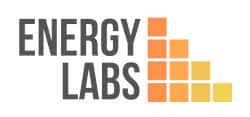Indoor air pollution can be a significant problem, leading to a range of health problems such as asthma, allergies and other respiratory issues. Decentralized heat recovery ventilation systems can help to improve indoor air quality by extracting stale air and supplying fresh air into the room, while recovering as much thermal energy as possible during the process.
Decentralized systems extract stale air from the building and supply fresh air into the room. This constant exchange of air helps to remove pollutants, such as dust, mold and bacteria, from the building, which can improve indoor air quality. These systems also include filters that remove pollutants and allergens from the air, which can help to improve indoor air quality and reduce the risk of mold growth.
Decentralized systems also recover thermal energy from the stale air that is being exhausted from the building. This can help to keep the temperature inside the building more consistent and reduce the need for heating and cooling. This not only leads to energy savings but also helps to reduce the potential for mold growth.
Another benefit of decentralized systems is that they are low maintenance. Unlike centralized systems, they don’t require ductwork, which reduces the need for regular cleaning and inspection. This can save homeowners money on maintenance costs.
In conclusion, decentralized heat recovery ventilation systems are an effective tool in improving indoor air quality. They work by providing a constant exchange of fresh and stale air, removing pollutants and allergens from the air, recovering thermal energy, and are low maintenance. These systems are a great investment for homeowners looking to improve indoor air quality, reduce the risk of health problems and keep their homes comfortable.
